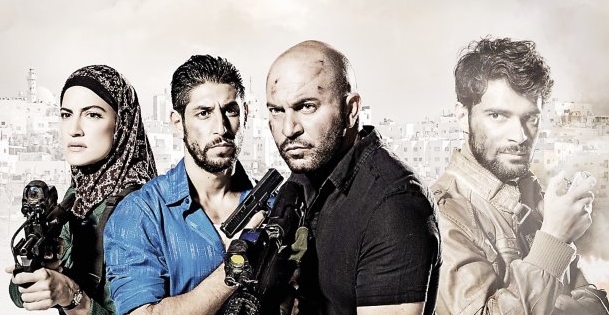
News

Why TV series Fauda is a hit with Jews and Arabs
JORDAN MOSHE
“Fauda brings to the fore many things that we may know about but don’t really internalise,” said Flescher, a freelance journalist and educator based in Jerusalem, who spoke at the eLimmud conference on Sunday, 31 May.
“There are times when you see both Palestinians and Israelis as victims of horrible acts of violence.”
Now in its third season, Fauda (Arabic for chaos) has captured the minds of viewers everywhere.
“Israel is in a golden age of television, and Fauda is by far one of the most successful Israeli TV series ever made in terms of number of viewers,” Flescher said.
However, the series wasn’t too popular when it piloted five years ago. Two leading Israeli television stations showed little interest in the idea, rejecting it on the basis that it wasn’t fit for entertainment.
“They said no one in Israel would want to watch anything about this conflict – we live it every day,” Flescher said. “Why would anyone want to see it on TV for entertainment? However, it was eventually taken up by the Israeli station YES, and subsequently by Netflix when it went global.”
Even then, it wasn’t clear that it would prove successful. Flescher said that even before Fauda hit the screen, its marketing made the Israeli public feel uncomfortable. Black signs with Arabic writing and no Hebrew translation appeared across the country, and though they promoted the upcoming series, they were taken down after they upset many Israelis.
“The fact that Israelis got so uncomfortable about just seeing words in the street in Arabic shows you how revolutionary Fauda is,” said Flescher. “It’s an Israeli show primarily in Arabic, in spite of both writers being Israelis.”
Nevertheless, the show proved popular for a variety of reasons. According to Flescher, the first question people discuss when watching Fauda is whether Israelis or Arabs suffer more.
“As an Israeli, I almost want Israel to win when I watch,” he said. “But there is also a sense of seeing things I know have happened in the news, but never realised the impact on Palestinian families. Fauda brings to your attention a lot of things you know, but perhaps don’t really internalise.”
Flescher unpacked various ethical questions raised by the series, including the issue of targeted assassinations (a key component of Fauda), and how it divides Israeli society. Those in favour argue that it reduces risk to Israeli soldiers and that the death toll on the Palestinian side is primarily caused by the use of human shields. Those against it argue that the method breeds further terror, especially given the high civilian death toll which accompanies each assassination.
Another element raised by the series is how Israeli military units operate.
“A lot of people around the world are fascinated by how the undercover Israeli unit operates,” said Flescher. “When the new season came out about a month ago, it was the top trending show in Lebanon, third in the Arab Emirates, and sixth in Jordan.
“People don’t want to know about the unit because they’re Zionists or approve of the Israel Defense Forces. Some watch it because they think it can help them to understand the enemy, others because it’s gripping drama. To others, it’s hard to imagine it actually happens.”




